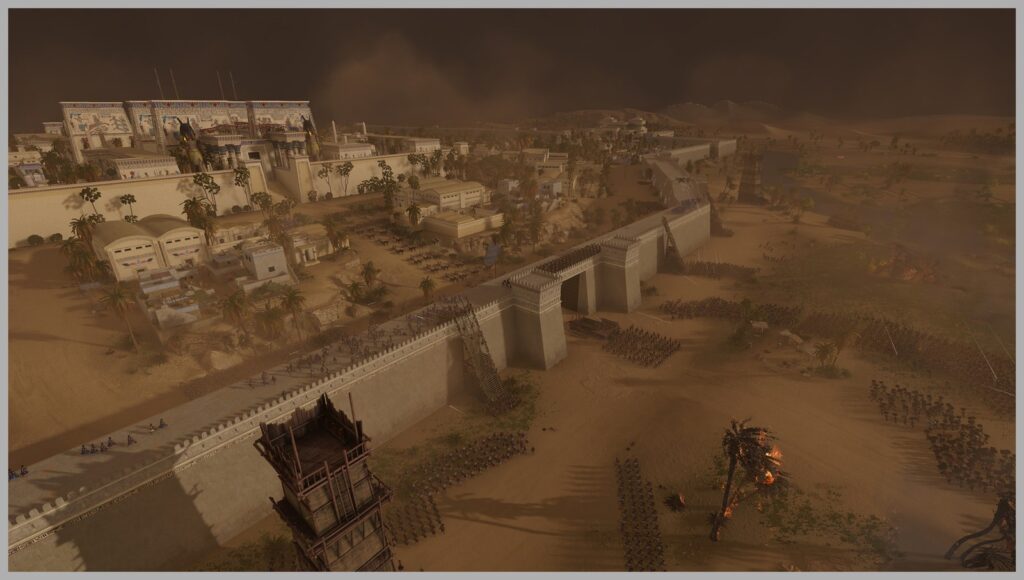When Shogun: Total War charged onto the scene in 2000, its unique mix of real-time strategy battles and turn-based campaign map formed the foundation of one of the most prolific and long-running series in gaming. The Total War franchise has grappled with many periods of history, from medieval Europe to the Roman Empire to the formation of the United States. But this is the first time we’ve had the chance to unite Ancient Egypt and become a pharaoh.
The battlefield experience will be instantly familiar to series veterans, and there’s a decent tutorial for newcomers, but developer Creative Assembly Sofia has overhauled the campaign side with well-themed mechanics and strategic challenges. Conquering the land of the pharaohs requires careful resource management, Machiavellian plotting in court, and the favor of the gods.
Setting the Scene
After 2,000 years of unparalleled power and wealth, the Late Bronze Age collapse marked the beginning of the end of Egypt’s dominance. Its empire began to crumble under the weight of mass migration, climate disasters, and frequent incursions from the aggressive Sea Peoples. Egypt and its long-term enemy, the Hittites, fell into decline, abandoning or losing cities to unrest and relentless external threats.
You can play as one of four Egyptian contenders for the throne (Ramesses, Seti, Tausret, or Amenmesse), Canaanite outsiders (Bay or Irsu), or potential Hittite kings (Suppiluliuma or Kurunta). Most folks will start as the youthful Ramesses, but you have some big sandals to fill if you want to match the achievements of the real Ramesses III, considered the last great monarch of the New Kingdom.
Courtesy of SEGA
I was impressed that Total War: Pharaoh offers a fully customizable experience. Beyond your campaign and battle difficulty levels, you can tweak all sorts of elements, including resources, attrition, gods, campaign movement, and lots more. You will likely need a game or two to figure out what you want to change, but this level of fine-tuning is welcome.
A gentle start may lull you into a false sense of security, but when the reigning Pharaoh Merneptah shuffles off this mortal coil, Egypt swiftly descends into civil war. To throw your hat in the ring, you must build legitimacy, mainly by conquering sacred lands. Taking cities is one thing, hanging on to them is much tougher, and balancing resources is key. Each city specializes in one resource, and you need a steady supply of food, wood, bronze, stone, and gold.
Regions with large cities and smaller towns will be familiar to series fans. Workers and resources are required to build anything, but unhappy populations revolt. Total War: Egypt adds another layer with outposts. These smaller building slots are dotted around the map (cities have three outposts), and you can erect monuments to increase your influence, construct trading centers to boost resources, or build military forts or watchtowers to tighten your grip. Your armies can reap benefits by interacting with your outposts to gain extra movement or buffs to their ambush chances, but these are a double-edged sword because invaders can pillage them too.
Choose Your Path
Total War: Pharaoh via Simon Hill
Once the game starts, several vital decisions will impact your progress and decide the shape of your game, but these are staggered, only triggered as each campaign passes through distinct stages. First, you must decide whether to follow the path to pharaoh or Hittite king. Most folks will obviously choose pharaoh, but the other option, and all that follow, offer some replay value.

